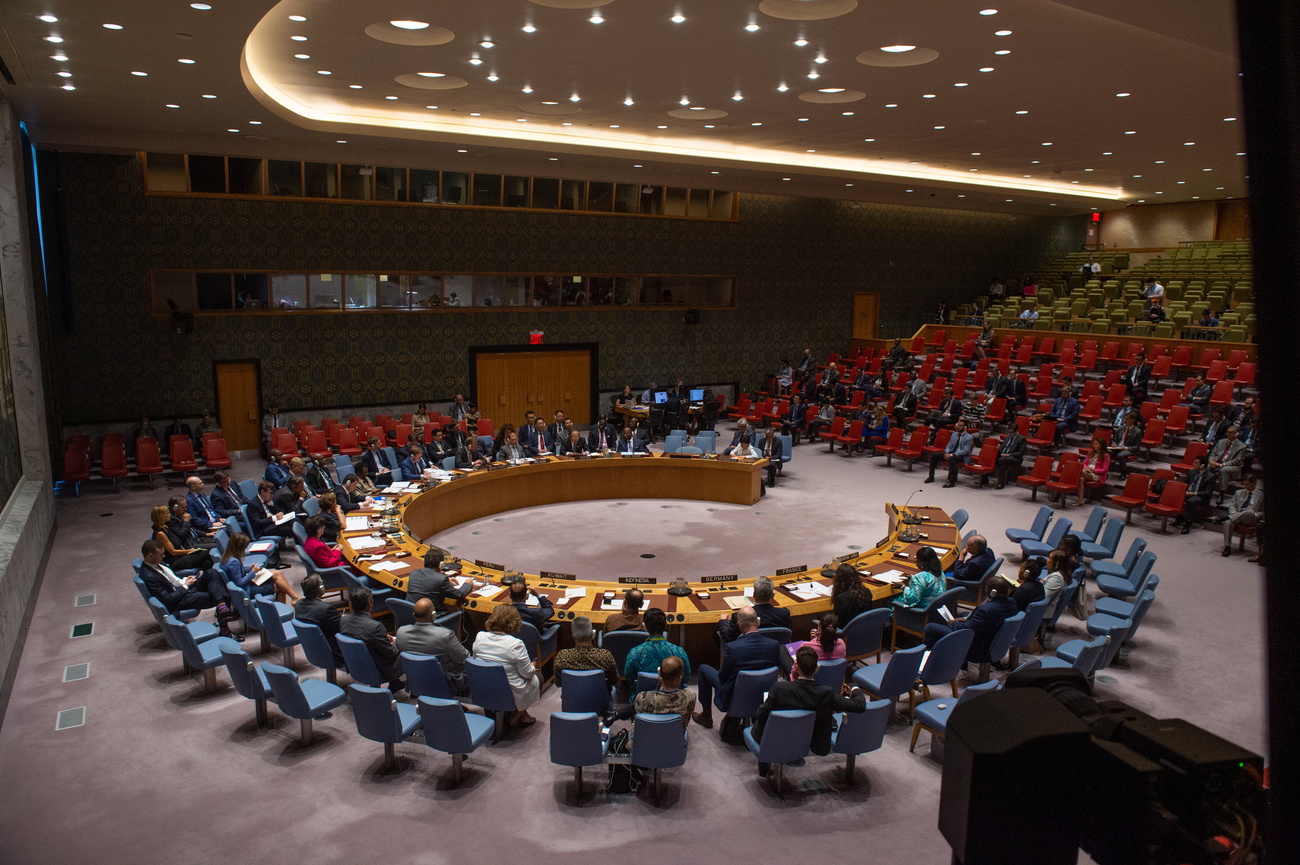
Switzerland merits seat on UN Security Council, says minister

Swiss Foreign Minister Ignazio Cassis says Switzerland deserves a non-permanent seat on the Security Council in 2023-2024. Such a move would not call in question the Alpine nation’s neutrality or independence, he argues.
Switzerland’s long-running campaign to hold a non-permanent seat on the Security Council may “give some politicians stomachache”, Cassis told the Tamedia media group on Friday.
“But according to our assessment, the benefits outweigh the risks.”
Since 2011, Switzerland has been diplomatically promoting its candidacy for a non-permanent council seat for 2023-2024.
The Swiss foreign minister’s remarks on Friday coincided with the 75th anniversary of the signing of the UN charter. On June 26, 1945, 51 countries signed the historic document in San Francisco, marking the launch of the global body after the Second World War. Switzerland was not one of them. The failure of its predecessor, the League of Nations, had left a bitter taste, and the Swiss viewed the UN as a kind of “winners’ club”.
But attitudes slowly changed; after much resistance Switzerland finally joined the UN in 2002 after a close public vote. Since becoming the 190th UN member, Swiss attitudes towards membership and other UN-related issues have been largely positive. So far, there hasn’t been much domestic political resistance about a future non-permanent seat on the Security Council, but this could be changing as more parliamentarians appear to oppose the idea.
Switzerland can handle it
Bern decided in 2011 to register Switzerland on the list of candidates for a seat on the Security Council in 2023-2024. It wants to hold one of the two non-permanent seats that Western Europe is entitled to for two years. The election in the UN General Assembly is to take place in June 2022.
In a separate interview in the Neue Zürcher Zeitung (NZZ) newspaper on Friday, Cassis pointed out that other neutral states such as Sweden and Austria had already served on the Security Council on several occasions.
With a seat at the top table in world politics, the foreign minister said Switzerland may indeed find itself in tricky political situations, but the Federal Council (executive body) would be able to handle them and Switzerland could also abstain from voting. But he said that would rarely, if ever, be necessary.
The role of the non-permanent Security Council members is to help find compromises, something which Switzerland is well recognised for via its good offices role, diplomatic services and promotion of peace, said Cassis.
“[Holding a non-permanent seat] would strengthen our relations with the world’s most powerful countries and reinforce our image,” he added.
1920: The League of Nations, the forerunner of the UN, held its first Assembly meeting in Geneva. In May of that year 56.3% of male Swiss voters – women were not eligible – accepted the government’s proposal to join the global body.
1929: First stone of the Palais des Nations HQ was laid in Geneva; the new complex was completed in 1937.
1945: 51 countries signed the Charter of the United Nations in San Francisco.
1946: First UN General Assembly meeting in London. League of Nations officially disbanded.
1948: Switzerland gained observer status at the UN.
1986: 75.7% of Swiss rejected joining the UN.
2002: 54.6% vote in favour of joining the UN in a national ballot on March 3; Switzerland becomes the 190th UN member on September 10.

In compliance with the JTI standards
More: SWI swissinfo.ch certified by the Journalism Trust Initiative

























You can find an overview of ongoing debates with our journalists here . Please join us!
If you want to start a conversation about a topic raised in this article or want to report factual errors, email us at english@swissinfo.ch.